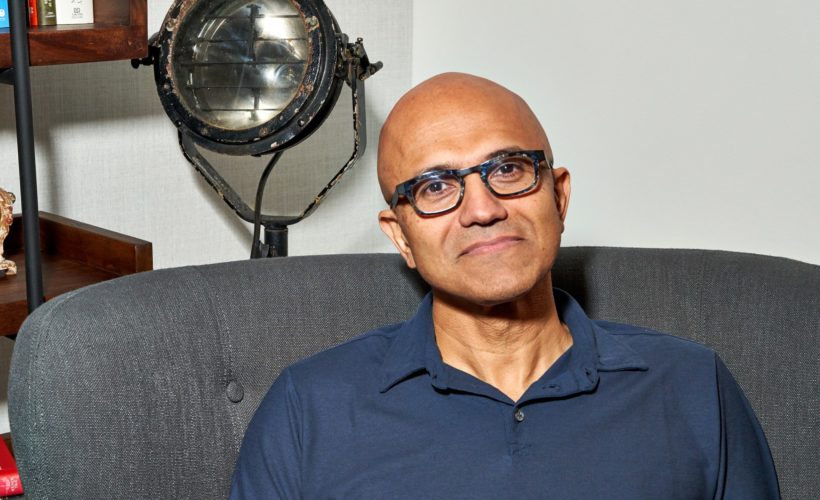Microsoft wants to make peace with Linux, saying this week that it will allow more than 2,600 other companies, including longtime rivals like Google and IBM, to use the technology behind 60,000 Microsoft patents for their own Linux-related open source projects.
That could be good news for makers of “internet of Things” devices. Linux powers everything from connected cars to Amazon Echo hardware, but Microsoft has long claimed that various Linux-related technologies infringe on its patents and has a history of suing the alleged violators. For example, in 2009 it sued GPS navigation device maker TomTom, arguing that the company’s Linux-based products violated a patent related to how operating systems handle file storage.
Microsoft said it will join the Open Invention Network, which was founded in 2005 and describes itself as a “patent nonaggression community.” Members, which range from Linux companies like Red Hat to automakers like Toyota and General Motors, agree not to file patent suits involving Linux projects against one another. Members also get access to patents that OIN itself owns.
Some aspects of the move remain unclear, including just which Microsoft patents are included, particularly patents licensed by Android device makers like Samsung. A spokesperson says Microsoft is licensing all its patents that are relevant to the “Linux System,” which OIN defines as software code released under an open source license and “Distributed with, or for use with, the Linux Kernel.” Microsoft isn’t open sourcing any new code as part of the announcement, and isn’t transferring ownership of any patents to OIN. It also didn’t commit to licensing future patents to OIN.
But by joining the group, Microsoft is essentially giving the Linux community permission to use 60,000 patents free of charge without fear of lawsuits. That could mean that if an OIN member, such as Google, adds functionality patented by Microsoft to the Linux kernel, others can use that open source code—regardless of whether they are members of OIN, without fear of lawsuits from Microsoft.
“We know Microsoft’s decision to join OIN may be viewed as surprising to some,” Microsoft deputy general counsel Erich Andersen wrote in the blog post announcing the decision. “It is no secret that there has been friction in the past between Microsoft and the open source community over the issue of patents.”
That’s putting it mildly. As recently as the early 2000s, former Microsoft CEO Steve Ballmer openly disparaged Linux, calling it a cancer only fit for communists. In 2007, Microsoft threatened to sue Linux companies like Red Hat over patent violations. It ultimately backed down, but did file suit against TomTom and other companies.
But as Linux and open source increasingly have become crucial to software development for companies large and small, Microsoft has worked to reform its image and become a good open source citizen. Earlier this decade, it ensured that popular open source software like Hadoop, Git, and Node.js could run on Windows, and supported Linux on its Azure cloud service. More recently, it’s open sourced some offerings, such as the core of the .NET software development platform and key parts of its Edge web browser, released a Linux version of its SQL Server software, and even started using Linux to run parts of Azure.
Even as it worked to repair its reputation with the open source community, though, the company pursued an aggressive course in patent litigation. It pressured smartphone makers like Samsung into patent licensing agreements over their use of Google’s Android, which is based on the Linux kernel. In 2012, Microsoft, Apple, and others started a consortium called Rockstar, which bought more than 4,000 patents from Nortel and sued Google and demanded payments from other smartphone companies for violating those patents.
Two years later, however, Rockstar sold its patents to a company called RPX, which vowed to use them solely to defend the tech industry from litigation. And as Microsoft explores new markets, it will now have assurance that it won’t be sued by other OIN members.
Microsoft’s move is part of a broader shift in the tech industry away from aggressive and potentially costly patent litigation. When Elon Musk announced in 2014 that Tesla wouldn’t sue companies that wanted to use its technology, he downplayed the importance of enforcing patents and pointed to the futility of the long legal battle between Apple and Samsung. “You wonder who’s really benefiting there,” he said during a conference call at the time. “And it seems like neither one. It doesn’t seem like it’s actually serving shareholders.”
More Great WIRED Stories
- The long, strange history of the presidential text alert
- Inside the secret conference plotting to launch flying cars
- It’s time to talk about robot gender stereotypes
- Cities team up to offer broadband and the FCC is mad
- PHOTOS: The space shuttle program’s golden age
- Get even more of our inside scoops with our weekly Backchannel newsletter
Source:WIRED











